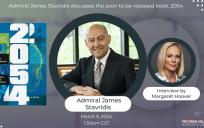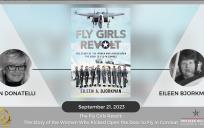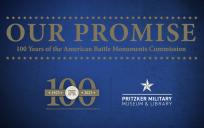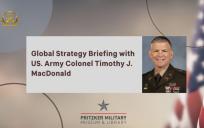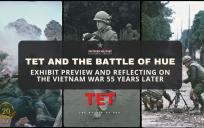
Record date:
Front & Center with John Callaway: LeMay: The & Wars of General Curtis LeMay
General Curtis LeMay was a monster, a belligerent and remorseless murderer. He was a patriot of the first order, a forward-thinking visionary who created the U.S. Air Force as we know it. He was so crazy he inspired two characters in Dr. Strangelove, both the paranoid Gen. Jack D. Ripper and the war-happy Gen. Buck Turgidson. He was so brilliant he turned the air war in Europe around, brought the war in the Pacific to an early close, and oversaw a decisive Cold War victory with the Berlin Airlift.
In short, there are few major figures in American military history on whom people are more likely to disagree than General Curtis LeMay. John Callaway interviewed Warren Kozak about LeMay in this Emmy-nominated program.
He was the youngest general in modern American history. As the Japanese surrendered in 1945, George Patton was 60 years old, and Douglas MacArthur was 65; LeMay was a mere 38, and had already ordered the deaths of more civilians than any other man in U.S. history. Historians still debate whether the Tokyo fire-bombings were an unforgivable war crime or a decision that saved even more lives by eliminating the need for a ground invasion; nevertheless, the young LeMay had two decades of command ahead, years in which he would oversee the transformation of the Strategic Air Corps into a powerful military force, serve a term on the Joint Chiefs of Staff during the Cuban Missile Crisis, and begin America's bombing campaigns against North Vietnam.
In Warren Kozak's estimation, LeMay's decision to join George Wallace's 1968 presidential campaign was a blunder that came to unfairly overshadow his entire legacy, associating LeMay with racist politics he did not personally endorse. Kozak argues for a more complex reading of the general, balancing LeMay's use of overwhelming, destructive air force with his core belief that doing so kept the men under his command safe - and countering LeMay's oft-stated willingness to use nuclear weapons with his little-known role in designing safeguards to ensure they would never be used accidentally or rashly, thereby inspiring the fictional Gen. Jack D. Ripper and ensuring he could never exist.
Kozak is a former NPR reporter. His work has appeared in the Wall Street Journal, the Washington Post, and other publications. He won a Benton Fellowship at the University of Chicago in 1993. Born and raised in Wisconsin, he now lives in New York City with his wife and daughter.

